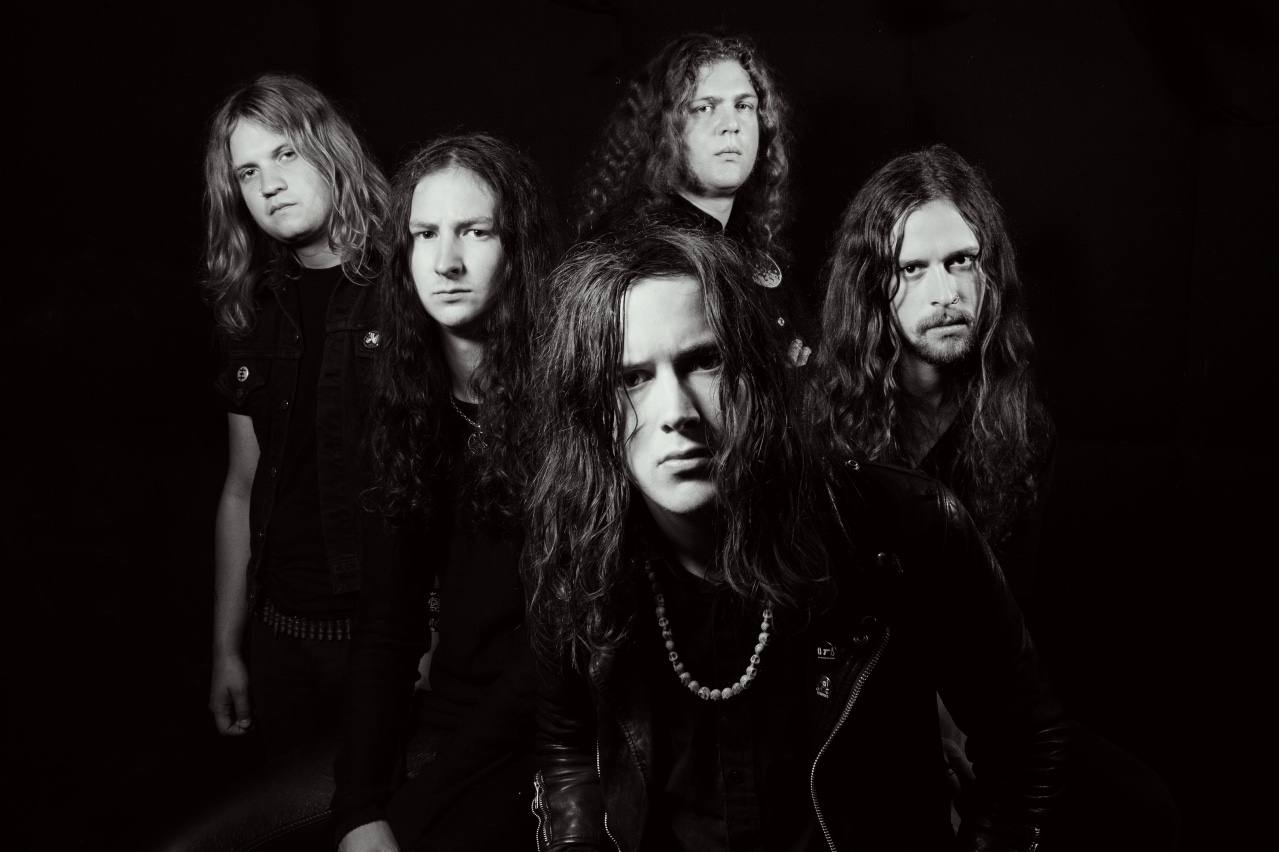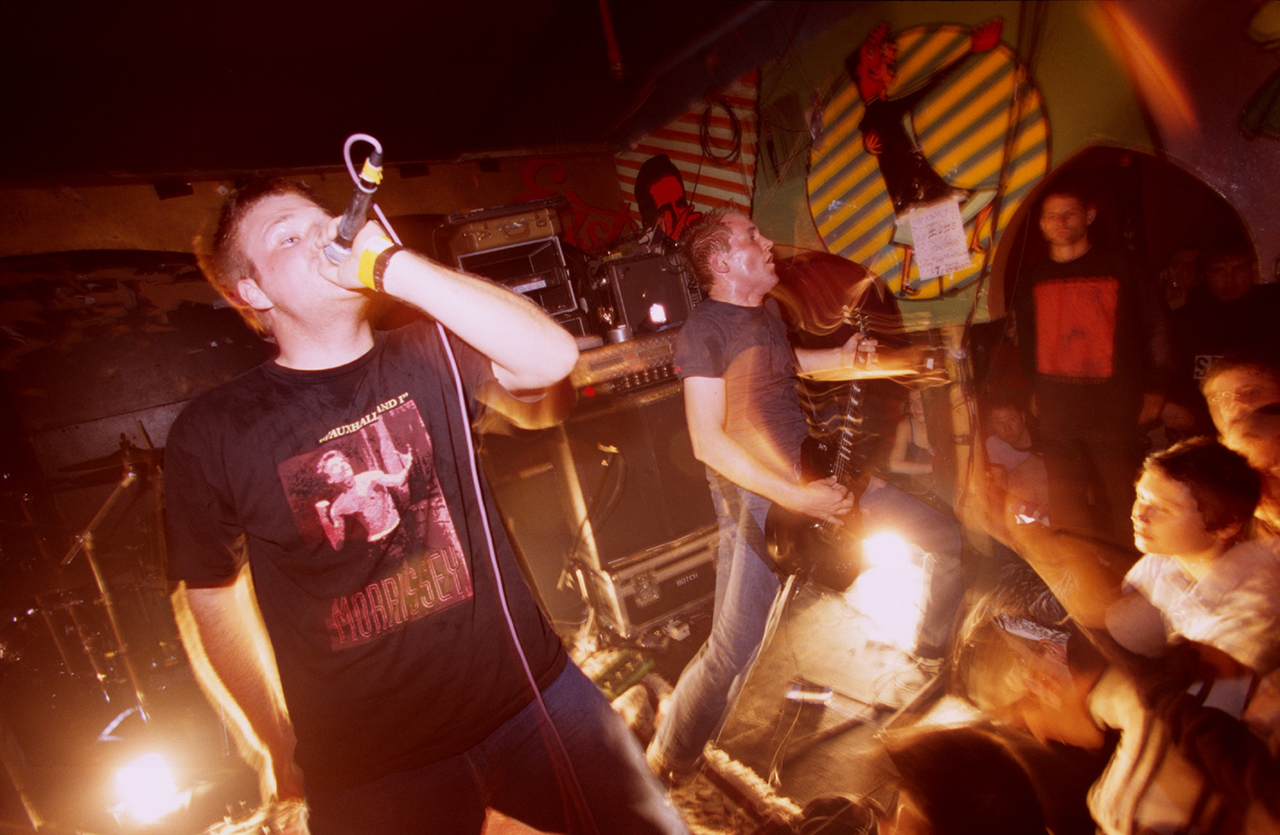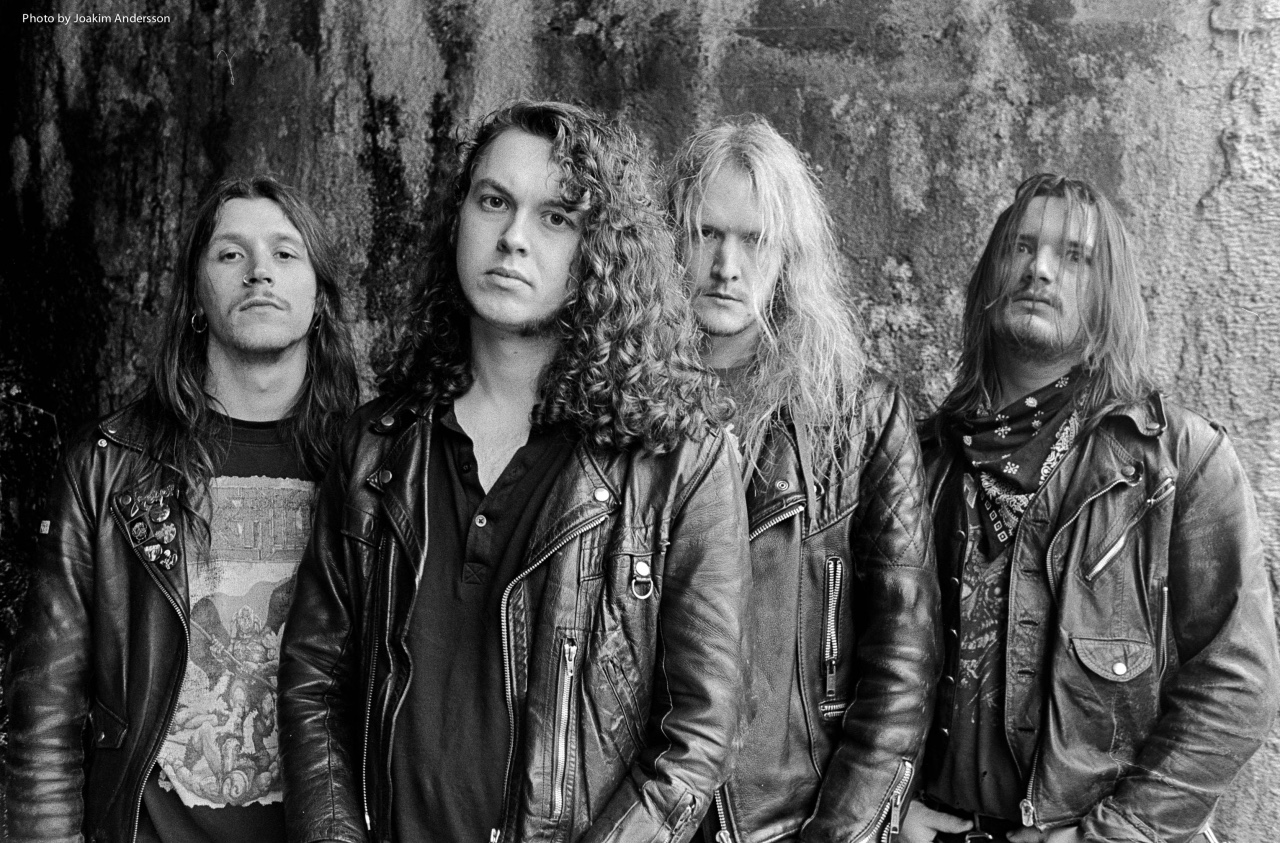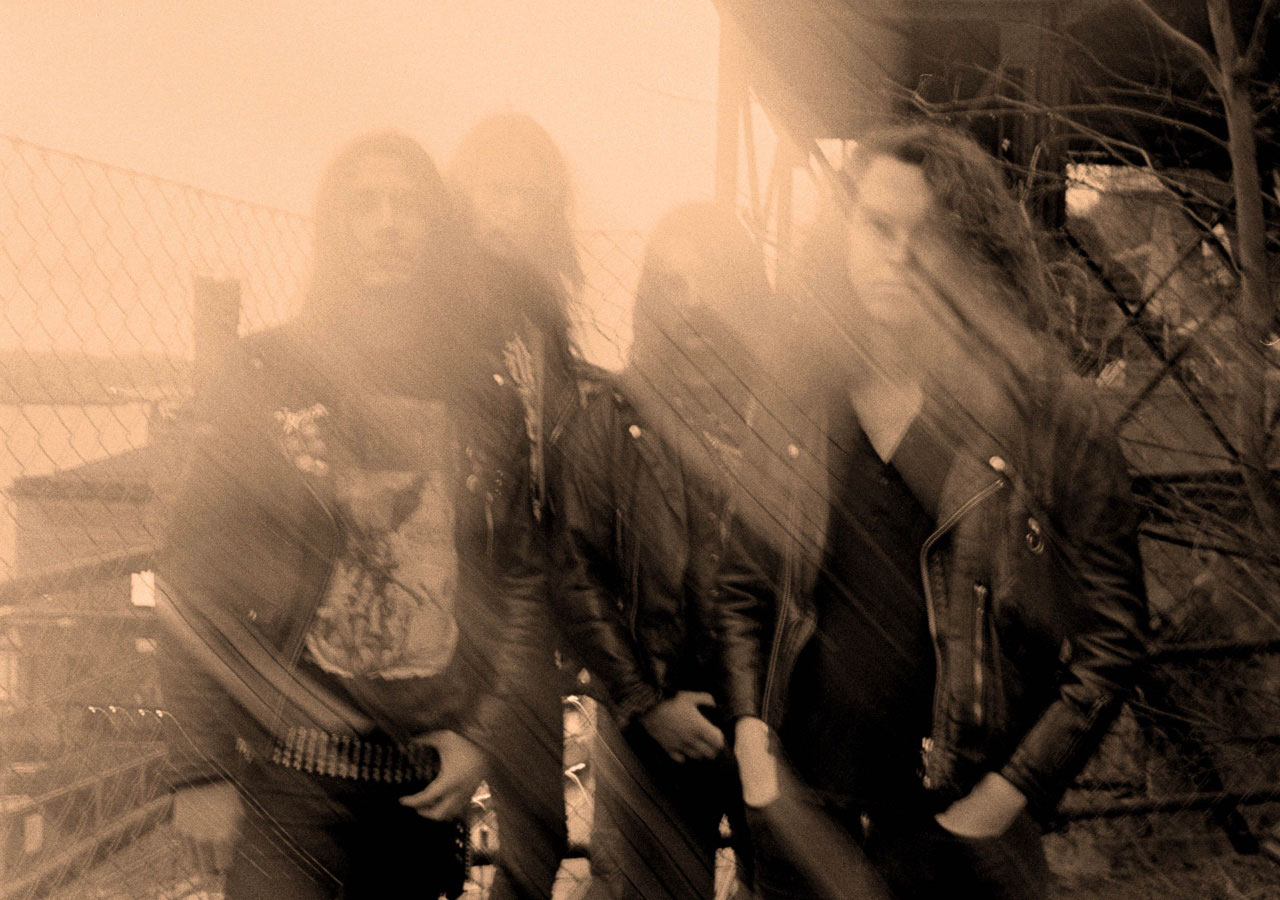In a world where way too many bands outstay their welcome and plod on to diminishing returns, there is almost something romantic and beautiful about the untapped potential of a group who bow out early. In doing so they leave a legacy of the unknown, the unfulfilled or the criminally under-appreciated. Fans will pour over their work and speculate into the ether about that genre-defining third album that never was, or the festival headlining spot they could have obtained in the distance had fate not conspired against them. It’s time to give these artists their dues. This is 10 bands who split up way before their time.

Iron Monkey
The second half of the 1990s wasn’t kind to British metal, as Paradise Lost traversed into gothic pop, Carcass split and Napalm Death couldn’t decide who to get to front them, the scene burrowed itself back underground.
The one band that defined that era was Nottingham sludge nihilists Iron Monkey, who were the most savage, most confrontational and most uniquely brilliant band in the country. Much of this was down to their late, iconic frontman Johnny Morrow, a man whose bizarre, belching vocal style could only be matched in extremity by his imposing and self-destructive stage presence.
They released two albums, with 1998’s swansong Our Problem being the most essential, before they decided to call it quits a year later. Sadly, we lost Johnny in 2002, meaning, although a version of Iron Monkey without Morrow or original drummer Justin Greaves and bassist Doug Dalziel have been active since 2017, it’ll be impossible to recreate the chemistry of the band's original incarnation. There was something magical and special about Iron Monkey during that time, a perfect synthesis of pure, distilled hatred, wilful antagonism and sickeningly heavy riffs that we’re very unlikely to witness again.
In Solitude
Formed in 2002 when the members were in their early teens – and with two brothers in the fold, vocalist Pelle and bassist Gottfrid Åhman – Uppsala Sweden’s In Solitude always carried the air of a closely knit cabal operating on a different wavelength to the rest of their peers. Initially, and superficially, they were one of a number of bands drawn to the haunted theatricality of Mercyful Fate and the musty, mystical era of 80s occult rock and metal. What set the four-piece apart, however, was the very definite sense that for them, this was a mission about something more than vinyl collection-worshipping cosplay, but rather a very personal worldview being hammered out on familiar tools to create a resonance all their own
Both the 2008 debut, In Solitude and the 2011 follow-up, The World.The Flesh.The Devil., were steeped in wide-eyed-in-the-shadows atmospheres that couldn’t have been conjured up without a being guided by an powerful internal compass. Add to that their ability to write songs like Serpents Are Rising that had all the freedom and galvanising potency of their forebears, not to mention their clear spiritual connection to fellow Uppsala-dwellers Watain, and it’s no wonder they’d gained a devout cult following.
It was their third album, 2013’s Sister, that threatened to make them one of underground metal’s biggest breakout bands. Inspired by New York monoliths Swans, but bringing all their gothic elements to the fore, Sister – along with Beastmilk’s Climax, released the same year – proved responsible for the goth/post-punk wave that’s still sweeping through the extreme metal scene and giving us its next big stars, Unto Others.
Two years later, just as all their potential was being realised, the then five-piece suddenly split. The announcement on a Facebook post that it was amicable and due to changes in their personal lives, didn’t lessen the shock. Very little was heard from bandmembers in the aftermath, but Pelle and Gottfrid resurfaced as Pågå last year with an album too esoteric to make any wider impact, and the other band they share, Invidious, is on seemingly indefinite hiatus. If we’re still wondering what might have been, their DNA remains deeply embedded in the underground to this day.

Quicksand
Emo and post-hardcore were still a good few years away from any kind of legitimate mainstream exposure when ex-Gorilla Biscuits man Walter Schreifels formed Quicksand and began to develop a whole new language for melodic yet heavy punk rock in the early 90s. The post-Nirvana major label gold rush, where majors were snapping up anything even remotely ‘grungy’, was in full swing and Quicksand released two utterly sublime albums; 1993’s Slip on Polydor and it’s follow-up, Manic Compression, on Island Records in 1995.
In terms of the music alone they had all the elements in place to achieve significant mainstream attention, and tours with The Offspring and Manic Compression breaking into the Billboard Top 200 hinted that the machine was working in their favour as well.
Unfortunately, a series of internal struggles and the stress of former DIY punks having to adapt to the major label game meant that Schreifels disbanded Quicksand at the height of their popularity. They’ve come back since, but there is no doubt that window of opportunity was missed.
Botch
Tacoma, Washington’s Botch have become as much a piece of mythology as they were a band here in 2021. As metallic hardcore began to really spread its creative wings in the late 90s Botch were, even by the sky-high standards of that scene, the most creative minds.
Botch only released two full-length albums, but the second of those records, 1999’s We Are The Romans, is without any question one of the most perfect records that metalcore has ever created. It’s taut yet expansive tsunami of crushing rhythms and odd time signatures seemed miles ahead of where heavy music was at the time, and the record is just as inspiring today.
In 2002 the band decided to split due to the tension between guitarist Dave Knudson and drummer Tim Latona, combined with the general stress of being a constantly touring underground hardcore band who played with an unmatched level of intensity. The released one posthumous EP a little later that year, the excellent An Anthology Of Dead Ends, which showed a tantalising glimpse of the more slow-burning and melodic places the band could have gone on the track Afghamistam.
Soon after metalcore invaded the mainstream, but one of its most brilliant voices wasn't there to live through it, leaving the band's legacy to grow and grow, and thousands gutted to have never experienced them live.

Shora
That Geneva’s Shora started life as a typical if rather ferocious noisecore band only makes the alchemical transformation that occurred on their second album, 2006’s Malval all the more startling. Getting rid of their singer after their 2000 EP, Shaping The Random, they decided to become an instrumental band, ask themselves what they were really about and discovered that they were very much about 70s krautrock and prog.
Having recorded a split album with Japan’s insanely prolific noise artist Merzbow in 2002, they fully emerged from their chrysalis four years later. They proceeded to not so much blow everyone’s minds, but to gradually unravel them over the course of four conjoined tracks and 33 minutes – to the point of radiant, drop-you-at-the-gates-of-Shambhala enlightenment. Channelling King Crimson via Guapo, Malval’s pilgrimage dynamics came across more like a post-metal album rendered in a higher dimension, impervious to either the cathartic heave of the post-Neurosis hordes, or the standard quiet/loud, plea/redemption dynamics of post-rock. What set Malval apart was its tangible yet elusive aura, a mesmerisingly stately decadence that felt like being compelled on a grand tour of the last days, and the crystalline world that will rise from the ashes.
Fittingly for a band that burned so brightly, Shora imploded and went dark very suddenly. First a UK tour was cancelled and then all of a sudden before the decade's end they were no more, never to be heard from again. The background radiation from Malval still lives on in bands like Kayo Dot, and the vinyl of the album itself now goes for somewhere in the region of £100, underlining what a rarity Shora truly were.
Morbus Chron
Morbus Chron are another band that split just as they were undergoing a tantalising moment of transition. Like Tribulation, they crawled out the murky Swedish death metal swamps, evolved wings and set off for lands unknown.
If their 2011 debut album, Sleepers In The Rift, sounded like a mosh to the death, in quicksand, on the shores of the River Styx, the Stockholm four-piece confounded everyone with their follow-up three years later.
Sweven swapped the dense, clotted atmospheres of the debut for something far more progressive and rarefied. Vocally, it was still bound to early Death’s testimony of the wretched, but the album took the Floridians' later expansiveness into new, ghostly realms of Purgatory. The opening instrumental, Berceuse, proved to be not the usual moment of calm before the storm, but instead laid tentative foundations for the labyrinthine excursions that would follow. Immersive and disconcerting, searching and forsaken, Sweven took some time to acclimatise to, but once everyone started to get their bearings, it was regularly proclaimed a masterwork – a stunning, open-ended mutation from the old-school death metal template that only enhanced the occult aura from which DM sprung.
But just as the world was waking up to the manifold depths they’d uncovered, Morbus Chron decided to go their separate ways in 2015, citing internal differences, declaring “We have reached our final crossroad and we simply can't choose the same path anymore. We had a fantastic run. The places we have been able to go, both musically and physically, are beyond what we ever hoped for.”
They played one final show at the Beyond The Gates festival in Bergen, Norway and headed off into the hinterlands. Lead vocalist Robert Andersson returned with last year with the band Sweven, their album The Eternal Resonance clearly intending to chart Morbus Chron’s next steps into yet more progressive territories. But with the world put on pause by the pandemic, it’s up in the air whether they’ll be able to make quite the same impact.

The Chariot
Did The Chariot break up too soon? They had a good decade-long career – a decent run by anyone’s standards. But with key members of the members of the band still totally engaged in a musical career of some description, it seems a shame to have disbanded a group of such quality.
Vocalist Josh Scogin departed the ranks of Norma Jean in 2002 and formed The Chariot a year later, and over that decade they slowly but surely built up a reputation of being one of the oddest and least predicable bands around. Their albums were stop-start walls of white noise mixed with as many other genre nods as they could possibly fit in, and their manic, often bizarre and downright dangerous live shows became the stuff of legend.
In 2012 they released the utterly fantastic One Wing, toured one more time and then just split up. Scogin went on to form the excellent blues-punk duo ‘68 and guitarist Stephen Harrison joined Fever333. Both of those bands have their merits, but it’s undeniable that there was something really special about The Chariot that none of the members have managed to capture since.
Handsome
Handsome really are one of the greatest lost bands in the history of music. Former Helmet guitarist Pete Mengede conceived the band in 1995, roping in other New York hardcore luminaries as Tom Capone, previously of Quicksand, and ex-Cro-Mags and Murphy’s Law drummer Pete Hines. It was the addition of vocalist Jeremy Chatelain that was the masterstroke though, his distinctive tones and superb grasp of melodic nous made Handsome stand out a mile in the ever-expanding post-hardcore landscape.
The single, self-titled debut album they released in 1997 was pretty much perfect for fans of Deftones, Fugazi or Far, being chocked full of massively instantaneous riffs, seductive grooves and Chatelain’s soaring hooks. It came out on Sony, was critically adored, the band toured with the likes of Silverchair and Wu-Tang Clan (yeah, actually) and then... nothing.
Back in the 90s there was very little way to find out exactly what happened to the back, they just vanished. A quick look today reveals very little other than the ol’ creative differences line. I guess we’ll never know, but, regardless, this is a definite case of wasted potential.
American Nightmare
Part of the legendary Boston hardcore scene of the late 90s and early 00s, American Nightmare could have been superstars in an alternate universe. Vocalist Wes Eisold had an instantly recognisable voice, and his band were capable of penning some absolutely world-class melodic hardcore just prior to a time when the style was about to be accepted by the mainstream. Their debut album Background Music is a legitimate masterpiece, and sent the hardcore underground into a wobbly-kneed frenzy, although this is where it all starts to go wrong.
The band found themselves in the middle of a lawsuit after a band of the same name took umbrage to their use of the moniker, briefly changing their name to A.N. and then American Nothing. It did little to settle the argument, and American Nightmare became Give Up The Ghost and released 2003’s We’re Down Till We’re Underground, which was a decent record as well. But the stress and stop-start nature of the period obviously took its toll on the band and they split suddenly in 2004, a day after the cancellation of a European tour.
They reformed in 2011, and played some rather underwhelming live shows in the UK in 2015, but due to their original disbanding we were robbed of what could have been one of punk rock’s most vital voices in the mid-00s.
Heck
What’s in a name? Quite a lot it would seem if the tales of both American Nightmare and also Heck are to be believed. Toward the end of 2013 the UK underground scene was filled with hushed whisperings about the band Baby Godzilla and their wild and untamable live shows. The press soon jumped onboard as well, and the band were booked to play both Download and Reading and Leeds in 2014, as well as a 2015 tour with Limp Bizkit. People were jumping over themselves to say how great it was to see Baby Godzilla... er... jumping all over themselves.
Then, halfway through 2015, the band were hit by a lawsuit from Japanese film company Toho regarding the use of the name Godzilla, leading to a name change to Heck. Despite having not even released a debut album, the band were written off by many and off they went to find the next shiny new thing to hype instead. Heck soldiered on, and when their full-length album, Instructions, did arrive in 2016, those still paying attention were delighted to hear that it was more than worth the wait. Far from being just a bunch of noisy blokes throwing themselves off of stuff, Heck had made a superb record, one that ended with a 16-minute long post-rock, hardcore, blues mash up journey called See The Old Lady Decently Buried Although Amongst Those Left Are You. This showed just what a special band they, not even could have been, but were. Unfortunately, their time in the spotlight had long since vanished and they split a year later. Who knows what could have been up next for them.

